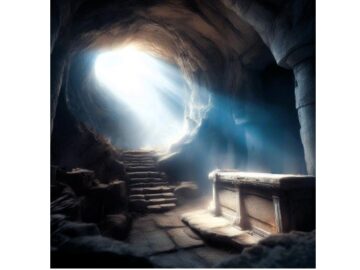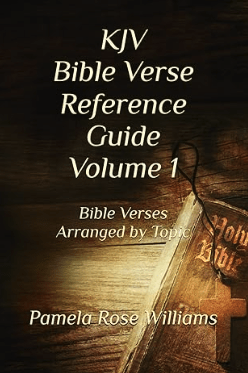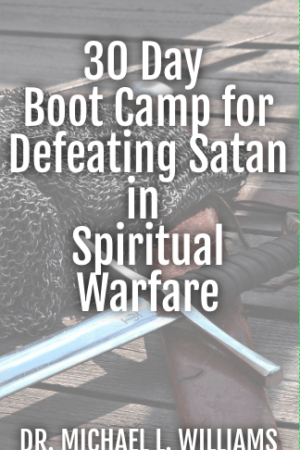Was the Apostle Peter the rock Jesus built His church on?
Jesus said He would build His church upon a rock. His Words about it have been debated through the centuries and still cause worldwide dissention to this day. What was the rock Jesus had in mind? Does the Bible say the Apostle Peter was the rock Jesus built His church on: or was it something or someone else?
Introduction: The following is an in-depth study based about a topic that has been controversial for many centuries. The study uses God’s Word, our Bible, to look at all aspects of this question. It digs deeply in many Bible verses and looks at key words in the original languages to determine what can and cannot be determined as truth. This assures us of proper understanding, interpretation, and context of these key words. It does not argue from any denominational perspective or history. Finally, we seek to follow God’s leading in how we conduct this study. Therefore, we seek that God’s Word determines what is His doctrine to be embraced and what is false doctrine to be rejected. May God bless us in our study.
Isaiah 28:9-13. “Whom shall he teach knowledge? and whom shall he make to understand doctrine? them that are weaned from the milk, and drawn from the breasts. 10 For precept must be upon precept, precept upon precept; line upon line, line upon line; here a little, and there a little: 11 For with stammering lips and another tongue will he speak to this people. 12 To whom he said, This is the rest wherewith ye may cause the weary to rest; and this is the refreshing: yet they would not hear. 13 But the word of the LORD was unto them precept upon precept, precept upon precept; line upon line, line upon line; here a little, and there a little; that they might go, and fall backward, and be broken, and snared, and taken.”
What rock did Jesus have in mind for the church?
The Bible teaches us that Jesus preached to thousands of people. During many of these events He miraculously multiplied a few loaves of bread to feed everyone and performed many other miracles. He also dealt with religious leaders that came to criticize Him and His disciples. Jesus and His followers eventually traveled to the coasts of Caesarea Phillipi where He had a private conversation with His closest disciples. They discussed who He was and for the first time He revealed to them the church He would build as follows:
Matthew 16:13-17. “When Jesus came into the coasts of Caesarea Philippi, he asked his disciples, saying, Whom do men say that I the Son of man am? 14 And they said, Some say that thou art John the Baptist: some, Elias; and others, Jeremias, or one of the prophets. 15 He saith unto them, But whom say ye that I am? 16 And Simon Peter answered and said, Thou art the Christ, the Son of the living God. 17 And Jesus answered and said unto him, Blessed art thou, Simon Barjona: for flesh and blood hath not revealed it unto thee, but my Father which is in heaven.”
Jesus asked the disciples Who He was
In Matthew 16:13-17 we see from this part of the conversation that this was a very important discussion. Jesus started by asking them about who do men say that He was? The responses varied. Some suggested He was a resurrected John the Baptist, whom had been beheaded preaching about the coming Messiah (John 1:19-21; Matthew 11:13-14; 14:2; Mark 6:14-39). Another said He was Elias, or Elijah, whom had been taken to Heaven in a chariot as seen in the Old Testament and expected his return one day as a prophet (2 Kings 1:1-2:12; Mark 9:1-13). Still others said He might be Jeremiah or some other prophet.
Jesus rephrased the question asking, who do you say that I am? Right then, Peter stated the correct answer: Jesus was “the Christ, the Son of the living God.” Jesus confirmed He was right and how God had blessed him by revealing it to him in verse seventeen.
Jesus said He would build His church on a rock
In Matthew 16:18 Jesus then followed up by saying how He would build His church and the foundation it would be built on as follows:
Matthew 16:16-18. “And Simon Peter answered and said, Thou art the Christ, the Son of the living God. 17 And Jesus answered and said unto him, Blessed art thou, Simon Barjona: for flesh and blood hath not revealed it unto thee, but my Father which is in heaven. 18 And I say also unto thee, That thou art Peter, and upon this rock I will build my church; and the gates of hell shall not prevail against it.
What was this rock Jesus referred to? Jesus was referring to the fact the Peter said Jesus was “the Christ, the Son of the living God” and that God had revealed it to him. This means, Jesus as the Christ is the Rock that He would build the church upon. So, the Rock, is Jesus that would die on the cross as the Christ for the sins of the world.
This is where some people differ in opinion as to what was the foundation of the church He was talking about. They disagree because Jesus made a play on Words by mentioning Peter’s name and the rock foundation of the church in the same sentence. For this reason, many throughout history believe Jesus was saying Peter was the rock the church would be built on.
What do we know about the word for rock that was used?
At first glance, it makes one wonder why anyone would be confused about the rock on which Jesus would build the church? Some people think the rock was Peter because if you look at this sentence a little deeper, we see Peter’s name in Greek is Petros. However, the rock on which Jesus said He would build His church was the Greek word, Petra.
It is not uncommon for Hebrew authors of the Scriptures is to use word plays or puns in their writings. Jesus and His disciples were Jewish, and they, along with Old Testament writers, were familiar with identical phrasing to link similar truths in different sections of Scripture. In the case of the book of Matthew, after the fall of the Soviet Union, a good copy of a Hebrew version of the book of Matthew from Russian Jews became available. It confirmed what many have thought over the years; that the book of Matthew was originally written in Hebrew.
Presentations about the Hebrew text of Matthew are full of examples of passages written with an overwhelming number of puns, wordplays, and identical phrasing. So, in this case, Petros and Petra are spelled and sound similar, but they are not exactly the same in definition. This is very important to know when it comes to understanding what the rock was that Jesus was referring to.
What was Jesus talking about when He said rock?
To start, if we look at Peter’s name in the original Greek, we see it defined as follows (1):
Greek Strong’s Number: 4074. Greek Word: Πέτρος
Transliteration: Petros
Phonetic Pronunciation: pet’-ros
Root: apparently a primary word
Cross Reference: TDNT – 6:100,835
Part of Speech: n pr m (noun, primary word, masculine)
Vine’s Words: NoneUsage Notes: English Words used in KJV:
Peter 161
stone 1
[Total Count: 162]Apparently, a primary word; a (piece of) rock (larger than <G3037> (lithos)); as a name, Petrus, an apostle:- Peter, rock.
If we dig deeper into his name, we see that the root and first syllable of his name starts with root “Pet-“. This is the same root used in the word Petrified, meaning something that has turned to stone. If we breakdown the etymology or history of origins of this Pet- word root, we see it further defined as follows (2):
Peter. masc. proper name, 12c., from Old English Petrus (genitive Pet(e)res, dative Pet(e)re), from Latin Petrus, from Greek Petros, literally “stone, rock” (see petrous), a translation of Syriac kefa “stone” (Latinized as Cephas), the nickname Jesus gave to apostle Simon Bar-Jona (Matthew xvi.17), historically known as St. Peter, and consequently a popular name among Christians…
So, in these references, we see Peter’s name is based on a term that means a stone, not a rock. Even if it was thought to mean rock, it does not fit the description of a rock. This is reinforced in the instances where the same Greek word Petros, refers to Peter’s name (Simon), and is literally only interpreted as a stone once. Early in Jesus’ ministry He saw a group of men following Him and during a conversation He gave Peter a nickname as follows:
John 1:38-42. “Then Jesus turned, and saw them following, and saith unto them, What seek ye? They said unto him, Rabbi, (which is to say, being interpreted, Master,) where dwellest thou? 39 He saith unto them, Come and see. They came and saw where he dwelt, and abode with him that day: for it was about the tenth hour. 40 One of the two which heard John speak, and followed him, was Andrew, Simon Peter’s brother. 41 He first findeth his own brother Simon, and saith unto him, We have found the Messias, which is, being interpreted, the Christ. 42 And he brought him to Jesus. And when Jesus beheld him, he said, Thou art Simon the son of Jona: thou shalt be called Cephas, which is by interpretation, A stone.
Notice, Jesus met Simon Peter (bar/son of Jona) and nicknamed him Cephas. This “Cephas” nickname, is seen here to be “interpreted” as stone. So, Peter’s name is interpreted to mean a stone not a rock.
What is the difference between a stone and a rock?
What is a stone and is it the same as a rock? They are similar, but not the same. A stone is smaller than a rock. We see this in the etymology of the word stone (3), compared to rock (4), as follows:
Stone(n.) (3)“Discrete piece of rock,” especially not a large one, Old English stan, which was used of common rocks, precious gems, concretions in the body, memorial stones, from Proto-Germanic *stainaz (source also of Old Norse steinn, Danish steen, Old Saxon sten, Old Frisian sten, Dutch steen, Old High German stein, German Stein, Gothic stains).This is reconstructed to be from PIE *stoi-no-, suffixed form of root *stai- “stone,” also “to thicken, stiffen” (source also of Sanskrit styayate “curdles, becomes hard;” Avestan stay- “heap;” Greek stear “fat, tallow,” stia, stion “pebble;” Old Church Slavonic stena, Russian stiena “wall”).From late 12c. as “substance of which stones consist, rock, stone as a medium.” The sense of “testicle” was in late Old English. The British measure of weight (usually equal to 14 pounds) is from late 14c., originally a specific stone. Rock (n.1) (4)[stone, mass of mineral matter], Middle English rokke, roche “stone as a substance; large rocky formation, rocky height or outcrop, crag,” from Old English rocc (as in stanrocc “stone rock or obelisk”) and directly from Old North French roque, variant of Old French roche, which is cognate with Medieval Latin rocca (8c.), from Vulgar Latin *rocca, a word of uncertain origin. According to Klein and Century Dictionary, sometimes said to be from Celtic (compare Breton roch). Diez suggests Vulgar Latin *rupica, from Latin rupes “rocks. “In Middle English it seems to have been used principally for large rock formations but occasionally of individual boulders. The extended sense of “a stone of any size” is by 1793, American English colloquial, and long was considered incorrect. It is an error to use rock for a stone so small that a man can handle it: only a fabulous person or a demi-god can lift a rock. [Century Dictionary]
The meaning “precious stone,” especially a diamond, is by 1908, U.S. slang; the sense of “crystallized cocaine” is attested from 1973 in West Coast slang. Also used attributively in names of animals that frequent rocky habitats, as in rockfish, rock badger, rock lobster (the last attested by 1843).
Rock is used figuratively for “a sure foundation, something which gives one protection and security” (especially with reference to Christ), from the 1520s (Tyndale); but it also has been used since the 1520s as “cause or source of peril or destruction,” an image from shipwrecks.
How then is Jesus the rock He referred to?
Referring back to the original verse, Jesus used the word rock to describe the foundation the church would be built upon:
Matthew 16:18. “And I say also unto thee, That thou art Peter, and upon this rock I will build my church; and the gates of hell shall not prevail against it.”
To know then what Jesus was referring to, when He said, upon this “rock” I will build my church, we must look at the Greek origin of this use of the word rock He used as follows (5):
Greek Strong’s Number: 4073. Greek Word: πέτρα
Transliteration: petra
Phonetic Pronunciation: pet’-ra
Root: from the same as <G4074>
Cross Reference: TDNT – 6:95,834
Part of Speech: n f (noun, feminine)
Vine’s Words: RockUsage Notes: English Words used in KJV:
rock 16
[Total Count: 16]Feminine of the same as <G4074> (Petros); a (mass of) rock (literal or figurative):- rock.
This word for rock Jesus used is not Petros, meaning stone; it is Petra, meaning rock. It has the same root “Pet-” as Petros. However, it is a noun ending in the letter “a” not “o”. As in many languages, nouns ending in “a” and not “o” respectively make the word feminine and not masculine referring to something about that noun. So, the reference to Peter as Petros, or stone, is masculine. It is not the same as the word Petra, which is feminine and the rock the church would be built on.
Why did Jesus use a feminine word for rock?
The question then becomes, why is this rock feminine and why does it not refer to a stone? To answer that we can start by looking at a few other places where this Greek word Petra was used:
Matthew 7:24-25. “Therefore whosoever heareth these sayings of mine, and doeth them, I will liken him unto a wise man, which built his house upon a rock: 25 And the rain descended, and the floods came, and the winds blew, and beat upon that house; and it fell not: for it was founded upon a rock.”
Matthew 27:59-60. “And when Joseph had taken the body, he wrapped it in a clean linen cloth, 60 And laid it in his own new tomb, which he had hewn out in the rock: and he rolled a great stone to the door of the sepulchre, and departed.”
Luke 6:48. “He is like a man which built an house, and digged deep, and laid the foundation on a rock: and when the flood arose, the stream beat vehemently upon that house, and could not shake it: for it was founded upon a rock.”
Luke 8:5-6. “A sower went out to sow his seed: and as he sowed, some fell by the way side; and it was trodden down, and the fowls of the air devoured it. 6 And some fell upon a rock; and as soon as it was sprung up, it withered away, because it lacked moisture.”.”
Romans 9:33. “As it is written, Behold, I lay in Sion a stumblingstone and rock of offence: and whosoever believeth on him shall not be ashamed.”
1 Peter 2:8. “And a stone of stumbling, and a rock of offence, even to them which stumble at the word, being disobedient: whereunto also they were appointed.”
We see 16 times here and in other places where this same feminine word Petra, refers to a rock which is larger than a stone. However, there is one specific verse that Petra was used to refer directly to Jesus Christ. This is a direct proof that the church was built on Jesus, not Peter!! (Note the Uppercase R)
1 Corinthians 10:1-4. “Moreover, brethren, I would not that ye should be ignorant, how that all our fathers were under the cloud, and all passed through the sea; 2 And were all baptized unto Moses in the cloud and in the sea; 3 And did all eat the same spiritual meat; 4 And did all drink the same spiritual drink: for they drank of that spiritual Rock that followed them: and that Rock was Christ.”
The feminine connection of the verb build is related to the noun build
So then, Jesus is that Rock! Why then was a feminine word, Petra, used? The answer is what Jesus said He will build on that rock and His relationship with it as follows:
Matthew 16:18. “And I say also unto thee, That thou art Peter, and upon this rock I will build my church; and the gates of hell shall not prevail against it.”
The word for “build” in Greek as used by Jesus is a verb as follows (6):
Strong’s Greek #3618. Greek Word: οἰκοδομέω
Transliteration: oikodomeō
Phonetic Pronunciation: oy-kod-om-eh’-o
Root: from the same as <G3619>
Cross Reference: TDNT – 5:136,674
Part of Speech: v (verb)
Vine’s Words: Build, Builder, Building, Edification, Edify, Edifying, EmboldenUsage Notes:
English Words used in KJV:
build 24
edify 7
builder 5
build up 1
be in building 1
embolden 1
[Total Count: 39]from the same as <G3619> (oikodome); to be a house-builder, i.e. construct or (figurative) confirm:- (be in) build (-er, -ing, up), edify, embolden.
In this case, Jesus referred to the church being built upon this rock, or Petras. Therefore, the verbal action to build is related to the noun of what was being built on the rock. If we look at the word build or building as a noun, it is also feminine as follows (7):
Greek Strong’s Number: 3619. Greek Word: οἰκοδομή
Transliteration: oikodomē
Phonetic Pronunciation: oy-kod-om-ay’
Root: feminine (abstract) of a compound of <G3624> and the base of <G1430>
Cross Reference: TDNT – 5:144,674
Part of Speech: n f (Noun, feminine)
Vine’s Words: Build, Builder, Building, Edification, Edify, EdifyingUsage Notes:
English Words used in KJV:
edifying 7
building 6
edification 4
wherewith (one) may edify 1
[Total Count: 18]Feminine (abstract) of a compound of <G3624> (oikos) and the base of <G1430> (doma); architecture, i.e. (concrete) a structure; figurative confirmation:- building, edify (-ication, -ing).
The church was built upon the Rock
So, in this case, notice that it says this word, build, is a “Feminine (abstract)” of a compound of what is being built. This means it is a compound of two words, oikos and doma, meaning “the base” of “architecture”. In other words, the build is representative of the base of architecture or foundation of the church being built.
Jesus said that His “church” would be built on this rock. Both words, church and rock are feminine. It is common in many languages to have items related to each other use the same gender of a word indicated by an ending “o”, or “a” in this case. Also, since the word for build is also an “abstract noun” it refers to something that is an “intangible idea.”
An intangible idea means it cannot be perceived or touched with our five human senses of sight, smell, touch, hearing, or taste (8)! Therefore, it is referring to the church, not as a physical building or formal earthly organization. It is referring to a collective of Spiritual believers that cannot be measured or encountered with our five senses. We see this in the word for church, defined as follows:
Greek Strong’s Number: 1577. Greek Word: ἐκκλησία
Transliteration: ekklēsia
Phonetic Pronunciation: ek-klay-see’-ah
Root: from a compound of <G1537> and a derivative of <G2564>
Cross Reference: TDNT – 3:501,394
Part of Speech: n f (noun, feminine)
Vine’s Words: Assembly, CongregationUsage Notes:
English Words used in KJV:
church 115
assembly 3
[Total Count: 118]from a compound of <G1537> (ek) and a derivative of <G2564> (kaleo); a calling out, i.e. (concretely) a popular meeting, especially a religious congregation (Jewish synagogue, or Christian community of members on earth or saints in heaven or both):- assembly, church.
This definition refers to a church as a called-out community of believers, both on earth and in heaven. It specifically refers to saints that have trusted Christ as their Savior. A saint is any believer that has trusted Christ as their Savior as follows:
Revelation 14:12. “Here is the patience of the saints: here are they that keep the commandments of God, and the faith of Jesus.”
Revelation 19:7-8. “Let us be glad and rejoice, and give honour to him: for the marriage of the Lamb is come, and his wife hath made herself ready. 8 And to her was granted that she should be arrayed in fine linen, clean and white: for the fine linen is the righteousness of saints.
We see here, it is not talking about an earthly organized local church or denomination. It is talking about a Spiritual church made up of those described as being holy, or saints. They are believers and not bound by time or space.
How then can the rock being Christ, also be feminine?
Now we get to the final key of knowing the rock the church would be built on was Jesus, not Peter. The saints, or those that are holy, are born-again Christians are the bride and body of Christ as the church. We see references that describe this church as follows:
Ephesians 1:18-23. “The eyes of your understanding being enlightened; that ye may know what is the hope of his calling, and what the riches of the glory of his inheritance in the saints, 19 And what is the exceeding greatness of his power to us-ward who believe, according to the working of his mighty power, 20 Which he wrought in Christ, when he raised him from the dead, and set him at his own right hand in the heavenly places, 21 Far above all principality, and power, and might, and dominion, and every name that is named, not only in this world, but also in that which is to come:
22And hath put all things under his feet, and gave him to be the head over all things to the church, 23 Which is his body, the fulness of him that filleth all in all.”Ephesians 3:8-10. “Unto me, who am less than the least of all saints, is this grace given, that I should preach among the Gentiles the unsearchable riches of Christ; 9 And to make all men see what is the fellowship of the mystery, which from the beginning of the world hath been hid in God, who created all things by Jesus Christ: 10 To the intent that now unto the principalities and powers in heavenly places might be known by the church the manifold wisdom of God”
Ephesians 3:20-21. “Now unto him that is able to do exceeding abundantly above all that we ask or think, according to the power that worketh in us, 21 Unto him be glory in the church by Christ Jesus throughout all ages, world without end. Amen.”
Ephesians 5:23-24. “For the husband is the head of the wife, even as Christ is the head of the church: and he is the saviour of the body. 24 Therefore as the church is subject unto Christ, so let the wives be to their own husbands in every thing.”
Ephesians 5:31-32. “For this cause shall a man leave his father and mother, and shall be joined unto his wife, and they two shall be one flesh. 32 This is a great mystery: but I speak concerning Christ and the church.”
Hebrews 12:22-24. “But ye are come unto mount Sion, and unto the city of the living God, the heavenly Jerusalem, and to an innumerable company of angels,23 To the general assembly and church of the firstborn, which are written in heaven, and to God the Judge of all, and to the spirits of just men made perfect, 24 And to Jesus the mediator of the new covenant, and to the blood of sprinkling, that speaketh better things than that of Abel.”
We see many things in these passages that refer to Christ and His bride, the church:
- Ephesians 1:18-23.
- The hope of His calling: Meaning a church that is called out
- To us-ward who believe: Meaning a church of believers exceeding in power
- Which he wrought in Christ: Meaning a church powerfully built by Christ
- Not only in this world, but also in that which is to come: Meaning a church that is not limited by space and time
- Gave him to be the head over all things to the church: Meaning a church body whose head is Christ
- Which is his body, the fulness of him that filleth all in all: Meaning a church body, which is also the body of Christ
- Ephesians 3:8-10
- To the intent that now unto the principalities and powers in heavenly places might be known by the church the manifold wisdom of God: Meaning a church that knows the principalities and powers in heavenly places and are enabled by the wisdom of God
- Ephesians 3:20-21
- Unto him be glory in the church by Christ Jesus throughout all ages, world without end. Amen: Meaning a church that glorifies God through Jesus Christ in all ages and never ending
- Ephesians 5:23-24.
- Christ is the head of the church: and he is the saviour of the body. 24 Therefore as the church is subject unto Christ: Meaning a church, who is the bride of Christ, has Jesus Christ as its head, and husband to save it, lead it, love it, and protect it, which inspires it to submit to His leadership
- Ephesians 5:31-32.
- They two shall be one flesh. This is a great mystery: but I speak concerning Christ and the church: Meaning a church that as the bride of Christ, are joined together with Him as two that become a one flesh, one body relationship
- Hebrews 12:22-24.
- To the general assembly and church of the firstborn, which are written in heaven, and to God the Judge of all, and to the spirits of just men made perfect: Meaning a church that is a general assembly of those who were perfected and born again into heaven, to come before the Judgement Seat of Christ to receive their rewards for what they did in His name
We see many things here, but the unifying truth that we see is that Christ and the church of believers become one body in marriage as husband and wife.
The marriage between Christ and the church starts as Spiritual
We can find references to this Spiritual marriage in Ephesians 5:15-32 about how Christ is the bridegroom and believers that have trusted Him as their Savior are His bride. It means that each believer, the moment they trust Christ as their Savior, is engaged to be married to Christ as their bridegroom.
In Judaism, when there was an engagement, the only way it can be broken is by divorce. This is because the couple is bound together as one despite the actual wedding not taking place yet. We see this in the relationship between Mary, the mother of Jesus and Joseph, her husband. When she was impregnated by the Holy Spirit with the baby Jesus, she was engaged to Joseph. They had not been officially married yet, but at the time, to break an engagement, a divorce was required.
Since Mary was pregnant, Joseph planned to divorce her quietly. However, an angel of the Lord visited Joseph in a dream and explained to Him that Mary was not unfaithful, she was chosen by God to give birth to the Messiah, Jesus. Joseph then chose not to divorce Mary to break the engagement. Read about it in Matthew 1:18-25.
The marriage between Christ and the church will one day be consummated
In a similar manner, as believers in Christ, we are engaged to Christ as His bride, the church, and become one with Him without fear of divorce (See Hebrews 13:5-6). However, Mary and Joseph later had a marriage ceremony, and we too will also have a marriage ceremony at the Marriage of the Lamb during the end times. Then all believers in history as the church will be formally married to Jesus, followed by a Marriage Supper of the Lamb to celebrate this marriage as follows:
Revelation 19:6-10. “And I heard as it were the voice of a great multitude, and as the voice of many waters, and as the voice of mighty thunderings, saying, Alleluia: for the Lord God omnipotent reigneth. 7 Let us be glad and rejoice, and give honour to him: for the marriage of the Lamb is come, and his wife hath made herself ready. 8 And to her was granted that she should be arrayed in fine linen, clean and white: for the fine linen is the righteousness of saints. 9 And he saith unto me, Write, Blessed are they which are called unto the marriage supper of the Lamb. And he saith unto me, These are the true sayings of God. 10 And I fell at his feet to worship him. And he said unto me, See thou do it not: I am thy fellowservant, and of thy brethren that have the testimony of Jesus: worship God: for the testimony of Jesus is the spirit of prophecy.”
Simply stated, ALL believers throughout history will one day formally become the bride of Christ as the church at the Marriage of the Lamb. The point to be made is that this is not an earthly marriage, and we are no longer tempted by earthly lusts and pride (1 John 2:15-17).
The Rock is Jesus Christ, not Peter
Christ is the Bridegroom and His bride is the church. Therefore, we are a church that becomes one with the groom, Jesus Christ, in the same way that a bride and groom become one flesh in marriage as follows:
Genesis 2:18. “And the LORD God said, It is not good that the man should be alone; I will make him an help meet for him.”
Genesis 2:24-25. “Therefore shall a man leave his father and his mother, and shall cleave unto his wife: and they shall be one flesh. 25 And they were both naked, the man and his wife, and were not ashamed.”
Ephesians 5:28-33. “So ought men to love their wives as their own bodies. He that loveth his wife loveth himself. 29 For no man ever yet hated his own flesh; but nourisheth and cherisheth it, even as the Lord the church: 30 For we are members of his body, of his flesh, and of his bones. 31 For this cause shall a man leave his father and mother, and shall be joined unto his wife, and they two shall be one flesh. 32 This is a great mystery: but I speak concerning Christ and the church. 33 Nevertheless let every one of you in particular so love his wife even as himself; and the wife see that she reverence her husband.”
It is this one flesh relationship where two become one that enables Christ to be our rock, or Petra, as the unifying foundation of the church. Therefore, the foundation of the church Jesus referred to as the rock, was in feminine form as the rock of Christ when we become one with Him as the church, ἐκκλησία, which is feminine.
One important thing to also consider is that in the Old Testament Hebrew we are also told that the LORD (Jehovah, Jesus) is our Rock of Salvation as follows:
Deuteronomy 32:1-4. Give ear, O ye heavens, and I will speak; and hear, O earth, the words of my mouth. 2 My doctrine shall drop as the rain, my speech shall distil as the dew, as the small rain upon the tender herb, and as the showers upon the grass: 3 Because I will publish the name of the LORD: ascribe ye greatness unto our God. 4 He is the Rock, his work is perfect: for all his ways are judgment: a God of truth and without iniquity, just and right is he.”
Deuteronomy 32:15-18. “But Jeshurun waxed fat, and kicked: thou art waxen fat, thou art grown thick, thou art covered with fatness; then he forsook God which made him, and lightly esteemed the Rock of his salvation. 16 They provoked him to jealousy with strange gods, with abominations provoked they him to anger. 17 They sacrificed unto devils, not to God; to gods whom they knew not, to new gods that came newly up, whom your fathers feared not. 18 Of the Rock that begat thee thou art unmindful, and hast forgotten God that formed thee.”
Deuteronomy 32:30-31. “How should one chase a thousand, and two put ten thousand to flight, except their Rock had sold them, and the LORD had shut them up? 31 For their rock is not as our Rock, even our enemies themselves being judges.” (Small “r”, their god, not the LORD)
Deuteronomy 32:36-37. “For the LORD shall judge his people, and repent himself for his servants, when he seeth that their power is gone, and there is none shut up, or left. 37 And he shall say, Where are their gods, their rock in whom they trusted” (Small “r”, their god, not the LORD)
We see here references to the LORD (Jehovah), being the Rock as the eternal God. In this case we see a discussion about how Jeshurun rejected the true God (Rock) and trusted in his false god (rock). In this sense, the Hebrew word is a masculine noun as we are not talking about the Rock as the foundation of the church, but God in general.
Hebrew Strong’s Number: 6697. Hebrew Word: צוּר
Transliteration: ṣûr
Phonetic Pronunciation: tsoor
Hebrew Word: צֻר
Transliteration: tsûr
Phonetic Pronunciation: tsoor
Root: from <H6696>
Cross Reference: TWOT – 1901a
Part of Speech: n m (noun, masculine)
Vine’s Words: RockUsage Notes:
English Words used in KJV:
rock 64
strength 5
sharp 2
God 2
beauty 1
edge 1
stones 1
mighty One 1
strong 1
[Total Count: 78]or tsur, tsoor; from <H6696> (tsuwr); properly a cliff (or sharp rock, as compressed); generally a rock or boulder; figurative a refuge; also an edge (as precipitous):- edge, × (mighty) God (one), rock, × sharp, stone, × strength, × strong. See also <H1049> (Beyth Tsuwr).
What about the keys to the kingdom Jesus mentioned?
Many will reinforce the claim that Peter was the rock by saying that Jesus gave Peter the keys to the church as follows:
Matthew 16:19-20. “And I will give unto thee the keys of the kingdom of heaven: and whatsoever thou shalt bind on earth shall be bound in heaven: and whatsoever thou shalt loose on earth shall be loosed in heaven. 20 Then charged he his disciples that they should tell no man that he was Jesus the Christ.”
Notice, Jesus mentioned these as keys to the kingdom of heaven. Some interpret this to mean that Peter can decide who does and does not go to heaven. However, this “binding” and “loosening” is also mentioned as something else in Scripture as follows:
Isaiah 61:1. “The Spirit of the Lord GOD is upon me; because the LORD hath anointed me to preach good tidings unto the meek; he hath sent me to bind up the brokenhearted, to proclaim liberty to the captives,
and the opening of the prison to them that are bound”Luke 4:16-19. “And he came to Nazareth, where he had been brought up: and, as his custom was, he went into the synagogue on the sabbath day, and stood up for to read. 17 And there was delivered unto him the book of the prophet Esaias. And when he had opened the book, he found the place where it was written, 18 The Spirit of the Lord is upon me, because he hath anointed me to preach the gospel to the poor; he hath sent me to heal the brokenhearted, to preach deliverance to the captives, and recovering of sight to the blind, to set at liberty them that are bruised, 19 To preach the acceptable year of the Lord.”
The Scripture from Isaiah is a prophecy of Jesus as the Christ. While He walked this earth, He also read this passage at a synagogue in Nazareth where He was raised. He told of how He was anointed by the Spirit of the Lord to bind up or support the healing of the broken hearted and open or deliver the captives from prison. He mentioned healing the blind and setting at liberty or freeing those that are bruised or oppressed. Of course, the reaction to what He said was a violent one and He escaped their rage.
The keys were used for binding and loosing
What is important is this binding and loosing was done by Jesus. However, once He was crucified, resurrected and ascended to Heaven, there was plenty of binding and loosing that needed to be done. This is where the keys come in. So, what are these keys? To understand this, we must look and see what are the keys used in binding and loosing? The first place we see this is right after the discussion about the keys to the kingdom.
Jesus began teaching His disciples about His coming crucifixion and the coming kingdom starting in Matthew 6:21-28. After six days, Jesus took Peter, James, and John up to a high mountain where His transfiguration took place in Matthew 17. He taught them many other things until at one point in Matthew 18, He talked about protecting the innocent and dealing with offensive people. It was at this point Jesus taught them how to handle sinful behaviors of brothers that trespass against them as follows:
Matthew 18:15-20. “Moreover if thy brother shall trespass against thee, go and tell him his fault between thee and him alone: if he shall hear thee, thou hast gained thy brother. 16 But if he will not hear thee, then take with thee one or two more, that in the mouth of two or three witnesses every word may be established. 17 And if he shall neglect to hear them, tell it unto the church: but if he neglect to hear the church, let him be unto thee as an heathen man and a publican. 18 Verily I say unto you, Whatsoever ye shall bind on earth shall be bound in heaven: and whatsoever ye shall loose on earth shall be loosed in heaven. 19 Again I say unto you, That if two of you shall agree on earth as touching any thing that they shall ask, it shall be done for them of my Father which is in heaven. 20 For where two or three are gathered together in my name, there am I in the midst of them.”
In this scenario, where there is a conflict amongst believers Jesus said to start with direct conversation with those involved alone. Then if unresolved, bring in one or two others alone that can examine the situation from a Biblical perspective. If it is still not resolved He said to tell it openly to the church. He finished by saying if he neglects to hear the church and what they say then, let him be unto thee as an heathen man and a publican. In other words, do not allow him to remain as a member.
Jesus also made a connection between the decision they make to bind or loose with heaven when He said, “Verily I say unto you, Whatsoever ye shall bind on earth shall be bound in heaven: and whatsoever ye shall loose on earth shall be loosed in heaven.” So, if they agree the person is not heeding Biblical counsel and corrective actions, then the decision to expel them from the church will be reinforced or bind up to prevent the person from adversely affecting others.
When we look up binding and loosening in this situation. In this case, binding means reinforcing their decision to expel them because the person doing wrong did not admit it and ask for forgiveness. However, loosening is when there an admission of wrong is acknowledge and forgiveness is asked and granted. Of particular interest is that it also says how we as members of the church are to make these binding and loosening decisions on behalf of the Lord,
Matthews 18:19-20. “Again I say unto you, That if two of you shall agree on earth as touching any thing that they shall ask, it shall be done for them of my Father which is in heaven. 20 For where two or three are gathered together in my name, there am I in the midst of them.”
Notice, it does not say that Peter must be involved, or that Jesus must personally be there for the decision to be made. What it is saying is that the key to making this important decision is based believers using the Word of God together to determine what is the proper course of action.
The keys were used to bring Jews to Christ
In Acts 1, after the Lord was crucified, He appeared to the Apostles and told them to stay there. He said that the Holy Spirit would come upon them and for them to take the Gospel to the world (Acts 1:8). He did other things, but just before Pentecost, He ascended up to heaven and the Apostles stayed there and prayed a few days until Pentecost.
On Pentecost, which is the feast of when Moses received the law on Mt. Sinai, the Apostles and disciples received the Holy Spirit. The Spirit empowered them all to preach to the world salvation and deliverance from the law through Jesus Christ. It was then that Peter stood up and preached to the masses of Jews about what happened and the testimony of the Jesus Christ (Acts 3:14-36). After preaching this, the response was overwhelming as follows:
Acts 2:37-41. “Now when they heard this, they were pricked in their heart, and said unto Peter and to the rest of the apostles, Men and brethren, what shall we do? 38 Then Peter said unto them, Repent, and be baptized every one of you in the name of Jesus Christ for the remission of sins, and ye shall receive the gift of the Holy Ghost. 39 For the promise is unto you, and to your children, and to all that are afar off, even as many as the Lord our God shall call. 40 And with many other words did he testify and exhort, saying, Save yourselves from this untoward generation.
41 Then they that gladly received his word were baptized: and the same day there were added unto them about three thousand souls.”
From here, five activities of church growth and discipleship took place that all of the Apostles were involved in as follows:
Acts 2:42-47. “And they continued stedfastly in the apostles’ doctrine and fellowship, and in breaking of bread, and in prayers. 43 And fear came upon every soul: and many wonders and signs were done by the apostles. 44 And all that believed were together, and had all things common; 45 And sold their possessions and goods, and parted them to all men, as every man had need. 46 And they, continuing daily with one accord in the temple, and breaking bread from house to house, did eat their meat with gladness and singleness of heart, 47 Praising God, and having favour with all the people. And the Lord added to the church daily such as should be saved.”
The keys Jesus spoke of were the keys of knowledge
What we learn from this passage is that Peter initially took the lead on sharing the Gospel of salvation. However, others that were saved were baptized, fellowshipped, trained, served, and took the “keys of the knowledge” of the Gospel from house to house (Act 2:46). This is important to know because it means that sharing the keys of the Gospel is not limited to one man or any group or denomination. However, over the centuries, some have taught it is limited, and it is still taught by many today.
It is interesting that Jesus also encountered a similar group that withheld these keys from others. They also insisted that all must go through them and subscribe to their teachings. Jesus openly chastised this group, who He referred to as lawyers that determined how God’s Word would be applied and limited to specific people. We find that Jesus rebuked them because they took away the ‘key of knowledge.” He added that they did enter or accept it into themselves and also prevented others from doing the same. This is the keys of the kingdom Jesus referred to: the keys of direct knowledge of God’s Word and sharing this knowledge of the gospel as follows:
Luke 11:45-52. “Then answered one of the lawyers, and said unto him, Master, thus saying thou reproachest us also. 46 And he said, Woe unto you also, ye lawyers! for ye lade men with burdens grievous to be borne, and ye yourselves touch not the burdens with one of your fingers. 47 Woe unto you! for ye build the sepulchres of the prophets, and your fathers killed them. 48 Truly ye bear witness that ye allow the deeds of your fathers: for they indeed killed them, and ye build their sepulchres. 49 Therefore also said the wisdom of God, I will send them prophets and apostles, and some of them they shall slay and persecute: 50 That the blood of all the prophets, which was shed from the foundation of the world, may be required of this generation; 51 From the blood of Abel unto the blood of Zacharias, which perished between the altar and the temple: verily I say unto you, It shall be required of this generation. 52 Woe unto you, lawyers! for ye have taken away the key of knowledge: ye entered not in yourselves, and them that were entering in ye hindered.
The keys were used to bring Gentiles to Christ
Next, we see another scenario where Peter was involved with Gentiles that came to get him to share the Gospel in Acts 10. In verses 1-8, a man named Cornelius had a vision. He was a devout man and was told by the angel of the Lord to send men to Joppa to get Peter and bring him back to him to tell Cornelius what He should do. Men were sent and traveled about 40 miles to where Peter was.
About the time of their arrival, Peter had been praying on the rooftop and had become hungry. The Lord sent Peter a vision of beasts in a sheet that were not legally clean to eat. The Lord told him to take and eat and Peter responded he could not do it because they were uncommon and unclean for eating as follows:
Acts 10:14-15. “But Peter said, Not so, Lord; for I have never eaten any thing that is common or unclean. 15 And the voice spake unto him again the second time, What God hath cleansed, that call not thou common.”
Peter doubted what it meant but then was told by the Lord that there were three men there to speak with him and to go down and go with them. He left the roof to meet the Gentile men that had arrived looking for Him. They told him the reason they were there, and he left with them to go meet Cornelius. Upon arrival, Cornelius welcomes Peter and Peter responded that they know how it was unlawful for him to be there with them, but God had told him to go so he asked why they sent for him (Acts 10:27-29).
Cornelius told him about his vision and why they sent for him (Acts 10:30-33). It was at this point Peter shared the Gospel with them and upon hearing it the Holy Spirit fell upon these Gentiles, and they began to speak in tongues and magnifying God as follows:
Acts 10:44-46. “While Peter yet spake these words, the Holy Ghost fell on all them which heard the word. 45 And they of the circumcision which believed were astonished, as many as came with Peter, because that on the Gentiles also was poured out the gift of the Holy Ghost. 46 For they heard them speak with tongues and magnify God.”
Peter and the Jews that came with Him saw this and realized that the right thing to do was to baptize them in the name of the Lord as follows:
Acts 10:46-48. “Then answered Peter, 47 Can any man forbid water, that these should not be baptized, which have received the Holy Ghost as well as we? 48 And he commanded them to be baptized in the name of the Lord. Then prayed they him to tarry certain days.”
We learn from this that Peter shared the Gospel with Gentiles because the Lord told Him to do so and showed Him a sign that they too, were born again and indwelled with the Holy Spirit. In this case, Peter, along with the other Jews decided, based on what they knew and saw that it was God’s will to baptize them.
From this point, we see the Gospel go out to the Gentiles and Peter went back to Jerusalem to tell the other Apostles and brethren. However, Paul also got saved about this time and consulted the Apostles to take the Gospel as a missionary beyond Jerusalem to Tarsus (Acts 9).
Final thoughts
This has been a long study, but very important to know what the keys to the kingdom are. This is in no way a criticism of the Apostle Peter nor those that honor him to this day. But instead, an affirmation that while Peter walked this earth, he played a very important leadership role in using these keys to the kingdom to open God’s Wisdom to the Jews and the Gentiles. However, he also shared these keys with others so that they too can serve as leaders in sharing the keys of God’s Wisdom, Jesus Christ.
Likewise, we must use these keys to open the door to our salvation and to God’s Wisdom to teach us how to live changed lives. We must also share these keys with others to open up God’s doors to them so they can enter His kingdom and also share these keys with others. In closing, these verses reinforce why Christ centered education, evangelism, Bible study, and teaching God’s Word is the key the whole world needs:
1 Corinthians 1:20-25. “Where is the wise? where is the scribe? where is the disputer of this world? hath not God made foolish the wisdom of this world? 21 For after that in the wisdom of God the world by wisdom knew not God, it pleased God by the foolishness of preaching to save them that believe. 22 For the Jews require a sign, and the Greeks seek after wisdom: 23 But we preach Christ crucified, unto the Jews a stumblingblock, and unto the Greeks foolishness; 24 But unto them which are called, both Jews and Greeks, Christ the power of God, and the wisdom of God. 25 Because the foolishness of God is wiser than men; and the weakness of God is stronger than men.”
Colossians 3:15-17. “And let the peace of God rule in your hearts, to the which also ye are called in one body; and be ye thankful. 16 Let the word of Christ dwell in you richly in all wisdom; teaching and admonishing one another in psalms and hymns and spiritual songs, singing with grace in your hearts to the Lord. 17 And whatsoever ye do in word or deed, do all in the name of the Lord Jesus, giving thanks to God and the Father by him.”
Isaiah 22:22. “And the key of the house of David will I lay upon his shoulder; so he shall open, and none shall shut; and he shall shut, and none shall open.
Revelation 3:7-8. “And to the angel of the church in Philadelphia write; These things saith he that is holy, he that is true, he that hath the key of David, he that openeth, and no man shutteth; and shutteth, and no man openeth; 8 I know thy works: behold, I have set before thee an open door, and no man can shut it: for thou hast a little strength, and hast kept my word, and hast not denied my name.
Philadelphia is the church of brotherly love that God said has the key of David to open and shut that no man has power against. Unlike the other churches mentioned in Revelation, God had nothing to say against this church that operated on brotherly love. However, God did say it has a little strength, yet God left before it an open door that no man can shut as they keep His Word and do not deny His name.
Let us do the same for God to bless us and keep us as we serve Him using the Key of David for His glory.
(1) https://ref.ly/logosref/GreekStrongs.4074
(2) https://www.etymonline.com/search?q=peter
(3) https://www.etymonline.com/search?q=stone
(4) https://www.etymonline.com/search?q=rock
(5) https://ref.ly/logosref/GreekStrongs.4073
(6) https://ref.ly/logosref/GreekStrongs.3618
(7) https://ref.ly/logosref/GreekStrongs.3619
(8) https://englishstudyonline.org/abstract-nouns/
(9) https://ref.ly/logosref/GreekStrongs.1577
(10) https://ref.ly/logosref/HebrewStrongs.6697

Dr. Michael L. Williams, Head of Ministry Operations and Technology at Christianity Every Day, is a Christ-centered Author, Educator, Biblical Counselor and Advisor. He is ordained in Pastoral Ministry and formerly the founding Pastor of Selah Mountain Ministries, a church started along with his wife, Pamela Rose, after several years of pastoral experience and training in Biblical Counseling. Selah Mountain provided Biblical counseling and education to the public on how to overcome life issues Biblically on topics such as anger management, marriage, addictions, and other subjects – often referred to as mental illnesses. To learn more about Dr. Mike visit the About page.





















